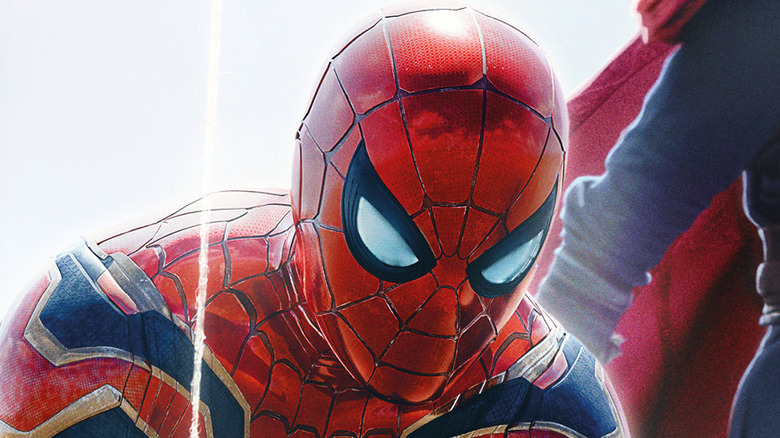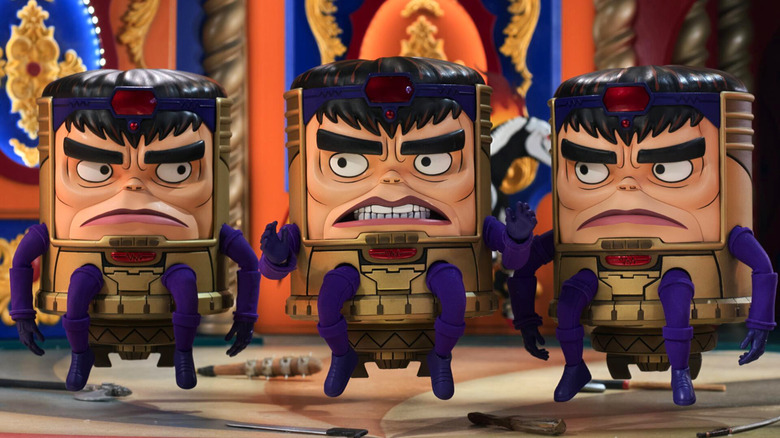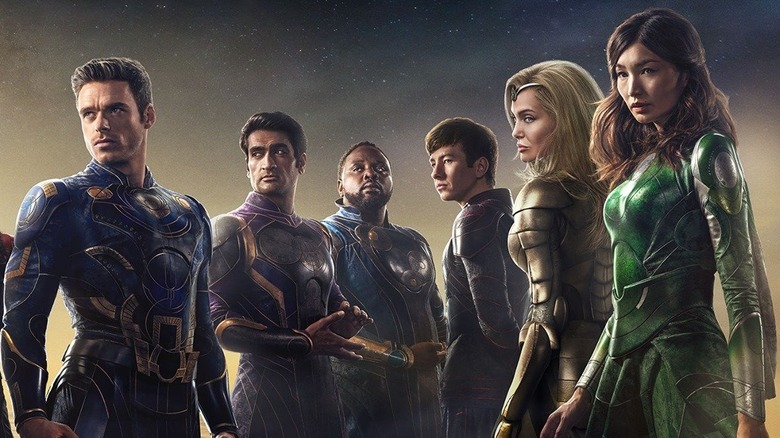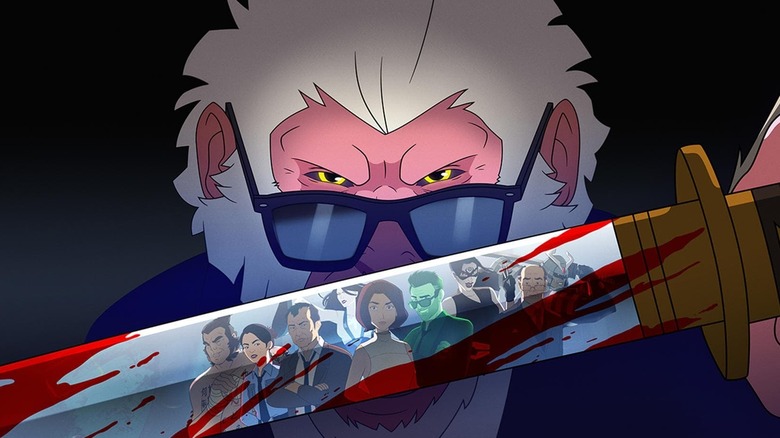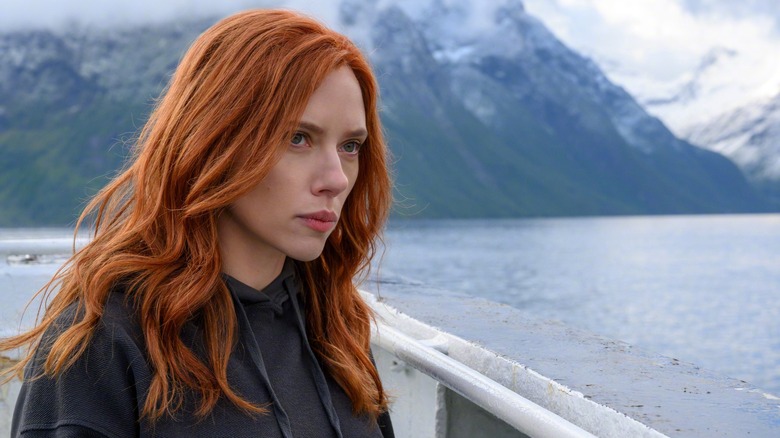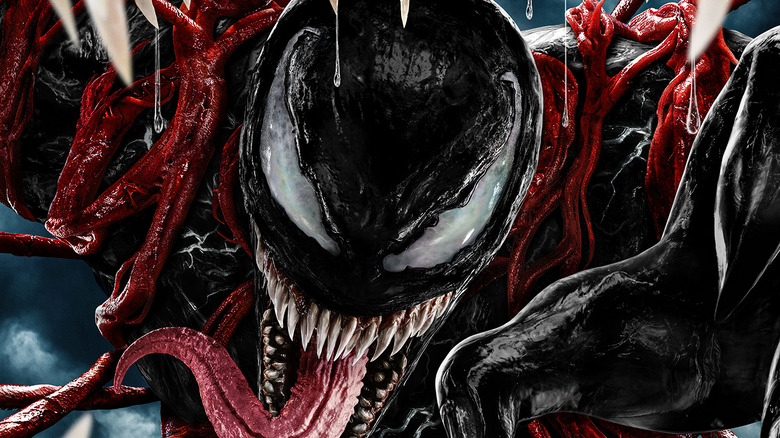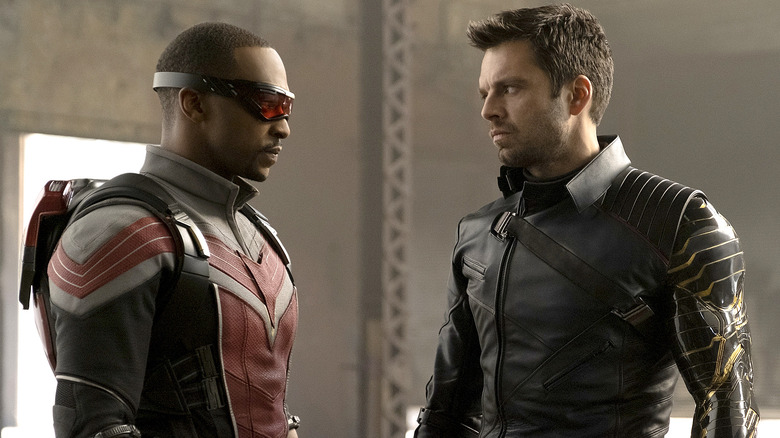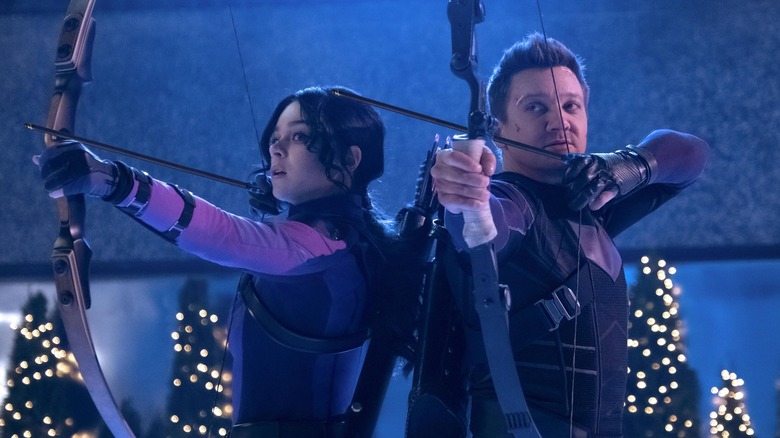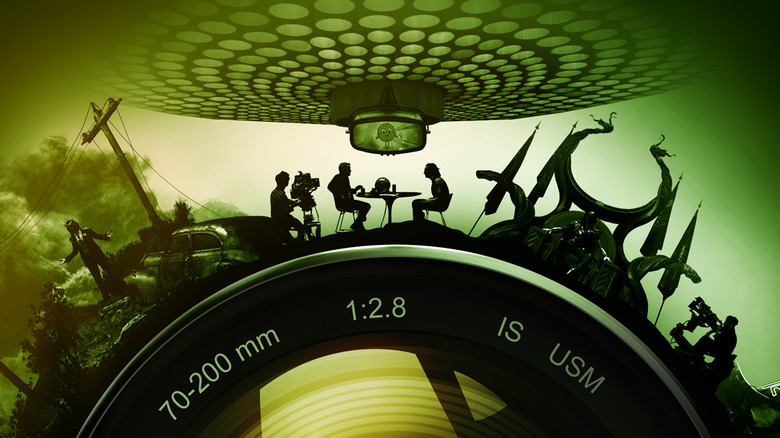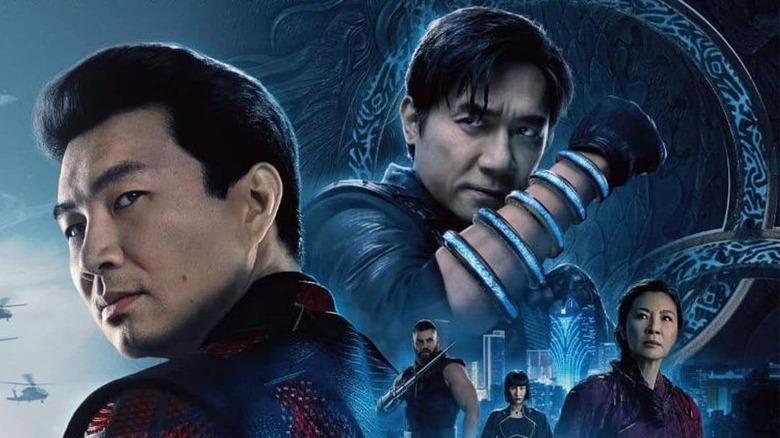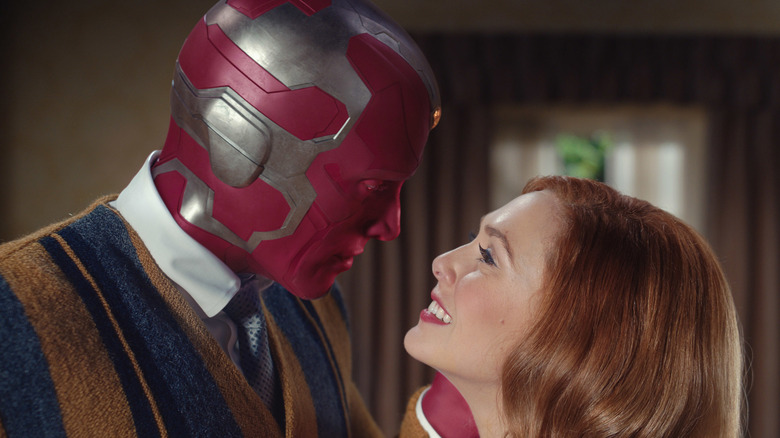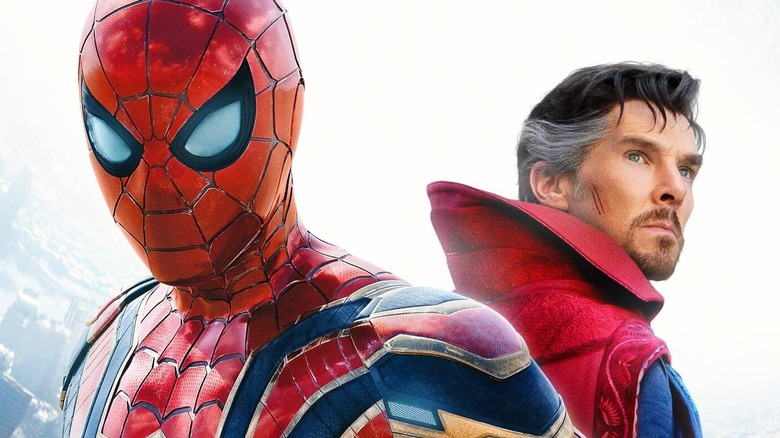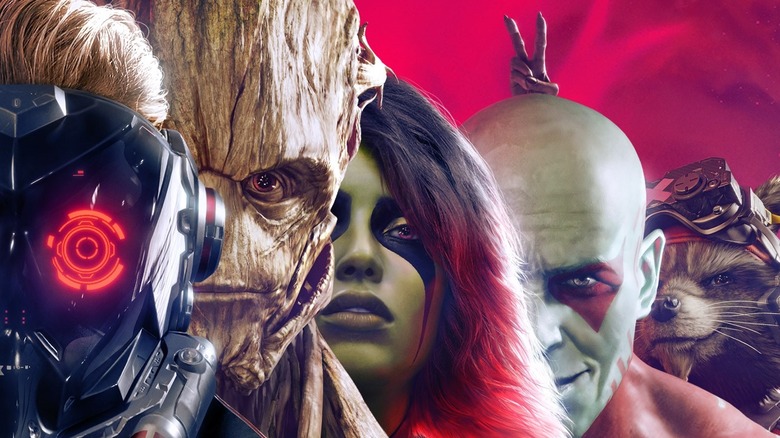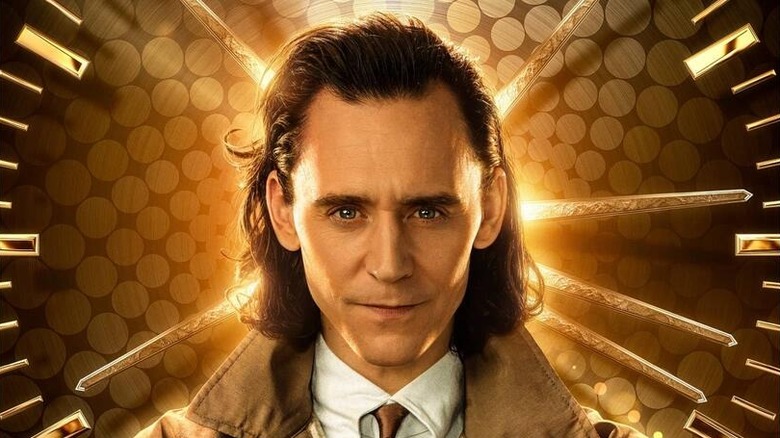The Marvel Media Of 2021, Ranked
2021 will go down in history as Marvel's busiest year ever, for better or worse. Following an unplanned hiatus in response to an unprecedented pandemic, Marvel Studios hit the ground running two weeks into the year and rarely slowed down in its 50-week jog, dominating the Disney+ streaming service and convincing American audiences to brave movie theaters in a time where large gatherings in small spaces was considered a deadly combination.
Meanwhile, other productions not directly affiliated with the Marvel Cinematic Universe came out swinging, giving cult-favorite Marvel characters their first adaptation and introducing a new spin on some recent fan-favorites. In the midst of so much Marvel, it was also one of the most inconsistent years for the brand, with hits and misses across the board. The following 14 productions —whether they be movies, shows, or video games associated with the MCU or not— brought out both the best and worst of the House of Ideas in 2021.
14. Marvel's M.O.D.O.K.
In 2019, Marvel Television and Hulu announced a lineup of adult-oriented animated comedy shows would be coming to the streaming platform, culminating in — you guessed it — a team-up series called "The Offenders." Eventually, three of the five announced shows (including "The Offenders") were shelved, leaving only two left. The first out of the gate, "M.O.D.O.K.," proved maybe the entire project should've been cut instead of only most of it. Despite its admittedly impressive stop-motion animation, "M.O.D.O.K." is nonetheless terrible, an exercise in patience-testing devoid of humor.
The core issue is its titular villain, as the show's chief creatives seem to think that as long as a protagonist undergoes a substantial enough character arc, they can be as insufferable as possible from the outset. Unfortunately, that line of logic means only the most forgiving of audience members will last long enough to watch that arc in motion. M.O.D.O.K. (both the character and his series) just isn't funny as-is, and the first few episodes of the show are a special kind of awful. Nothing under the world-famous red logo stumbled as badly in 2021 as "M.O.D.O.K."
13. Eternals
The cosmic levels of disappointment rippling out of "Eternals" have yet to be truly felt. How often does a visionary director win several Oscars, including best director, in the same year as the release of their huge studio blockbuster? Chloé Zhao may be a filmmaking force to be reckoned with, but that force is barely felt in "Eternals." By all accounts, Marvel Studios' most ambitious adaptation since "Guardians of the Galaxy" feels like it was made by a group of people with an aggressively superficial understanding of the MCU's qualities.
Quippy dialogue and superpowered throwdowns are copious, but they ooze condescending simplicity, as if those are the only prerequisites for a Marvel Studios production. The film's non-chronological storytelling is a blight on its pacing, its secondary villain serves absolutely no purpose, and its exposition only serves to make the immediate story less interesting. "Eternals" is the first genuinely awful film from Marvel Studios, and it wouldn't make any difference if none of its characters were ever seen again.
12. What If...?
Of the many MCU productions that were released in 2021, the most significant was arguably the studio's very first animated series ... the first of many, as it turned out. "What If...?" was absolutely bursting with potential, with an enormous cast of MCU veterans and a gorgeous art style, and though it achieves some serious highs throughout its first season, it falters more often than not. For every give, there's a take: The animated action might look next-level, but when characters stop fighting and start talking, the animation nose-dives.
It's fun to see the MCU's take on genres like murder-mystery and zombie-comedy, but the episodes that stay in the MCU's usual lane come off half-baked by comparison. Sure, seeing all the individual heroes meet in one place for the season finale might sound amazing, but the team-up episode is far-and-away the worst of the bunch. "What If...?" is emblematic of the Marvel Cinematic Universe's 2021 slate, i.e. mostly entertaining, but deeply uneven.
11. Marvel's Hit Monkey
The newest character from the House of Ideas to receive a screen adaptation this year, Hit Monkey's origin series was one of the two remaining productions from Marvel Television and Hulu's abandoned "Offenders" initiative, the other being "M.O.D.O.K." Though it doesn't exactly prove the missed potential of the project, "Hit Monkey" is nonetheless a decent action series, albeit burdened by strange creative decisions.
The show's animation is stilted and choppy, harkening back to the Adobe Flash web-cartoons of the early 2000s (whether or not that was intentional is still unknown). Its plot similarly communicates an oddly contradictory tone, as its main character grows conflicted with causing violence while his show loudly celebrates and glorifies the gallons of spilled blood across its ten episodes. It all amounts to a final product that feels like an unkempt mass of ideas instead of a cohesive whole. "Hit Monkey" is totally serviceable, but it's a middling footnote in the ever-growing superhero TV landscape.
10. Black Widow
In hindsight it's pretty wild to consider that, at one point in time, the next years-long saga in the Marvel Cinematic Universe was going to open with something as safe and standard as Natasha Romanoff's long-overdue solo adventure. Unfortunately, the first "Iron Man" this is not. "Black Widow" is by no means a failure, but the film's lack of ambition or style are egregiously noticeable in its attempt to tie up Natasha's loose ends and give her mysterious past a bit of closure.
In that sense, the film feels more obligatory than inspired, not helped by its by-the-numbers character arc for one of the all-time MCU heroes. The film's secondary objective, introducing Florence Pugh as Nat's foster sister Yelena Belova, is far more successful. Pugh is a revelation, robbing the whole film at gunpoint and kicking off the next generation of Avengers. "Black Widow" is among the weaker MCU entries overall, and its legacy ironically belongs entirely to the second incarnation of the hero instead of the first.
9. Venom: Let There Be Carnage
Sometimes, a joke is funniest when everyone's in on it. The original "Venom" may not have been a hit with critics, but one of the common points of praise was the weirdly endearing relationship between protagonist Eddie Brock and the Venom symbiote. "Venom: Let There Be Carnage" proves the filmmakers were listening. The film casts aside common genre fiction conventions such as "explaining what is happening" and leans hard into the key qualities audiences loved about its predecessor, namely the show-stealing symbiote.
Venom themselves is absolutely hysterical (intentionally this time), with a level of emotional maturity that shockingly exceeds most silver-screen Marvel heroes. Tom Hardy brings back his offbeat energy as Eddie Brock, and Woody Harrelson serves fresh, juicy ham as Cleetus Kasady. At a refreshingly lean 90 minutes and infused with a welcome helping of queer subtext (though it's moreso "domtext," honestly), "Let There Be Carnage" is a wildly entertaining ride on a barely-functioning screenplay.
8. The Falcon and The Winter Soldier
There is so much to appreciate about the six-part plight of Sam Wilson and Bucky Barnes. The show's commentary on systemic racism and classism across American society is pointed and welcome. Its inclusion of Isaiah Bradley casts an all-too-real shadow over the saturated mythology of the Captain America title, and its pilot might be the single best episode of the five(!) Marvel Studios series released this year. Unfortunately, the series takes a sharp decline as soon as its central villain enters the frame.
Series antagonist Karli Morgenthau is paradoxically presented as both a sympathetic transgressive agitator and a ruthless murderer, and her deeply flawed characterization ripples across the series, including how it affects Sam Wilson's transformation into Captain America. For all its faults, including a rushed character arc for newcomer John Walker, "The Falcon and The Winter Soldier" undeniably takes big swings. Future MCU productions should take influence from its ambition, including the Sam Wilson Captain America film that was announced days after the finale, but that ambition will only work with equally strong fundamentals.
7. Hawkeye
Much like the man himself, there's nothing particularly special about "Hawkeye." Its visual appeal is extremely lacking (even more than usual for an MCU joint), and its core narrative ingredients are unspectacular. By that same token, however, "Hawkeye" edges out as the most consistent MCU series of the year. It all might stay firmly in B-tier, but the excellent action choreography and chemistry between Jeremy Renner and newcomer Hailee Steinfeld never wavers.
For the first time in years, a Marvel Studios production's stakes are kept to the streets, allowing the mentor-student relationship between Clint Barton and Kate bishop to take center-stage. The show improved considerably throughout its run, introducing recent fan favorites like Florence Pugh's Yelena Belova and deeper cuts like the vaunted arrival of a long-lost Marvel icon. "Hawkeye" never gets better than "pretty good," but it embodies one of the MCU's signature qualities: a proven sense of reliability.
6. Marvel Studios: Assembled
Marvel Studios has never exactly been shy about sharing its filmmaking process, but the company took it a step further in 2021 with "Marvel Studios: Assembled," its very own docu-series. Following each new MCU release throughout the year was a pristinely produced hour-long look into its planning, production, and completion with interviews from the cast and key creatives.
Great tidbits like "WandaVision" director Matt Shakman's history with American sitcoms, the writers of "Black Widow" basing their film's story around a single line in "The Avengers," and "Loki" star Tom Hiddleston's reflection on playing the character for a decade only enhance repeated viewings of their respective MCU entries. If there's anything holding the show back, it's the pacing: Each episode is so thorough, they always feel like they end too soon in turn. Even so, "Marvel Studios: Assembled" has already become a lovely new tradition for MCU die-hards.
5. Shang-Chi and the Legend of the Ten Rings
One of Phase Four's most pronounced missions is lining up the next generation of Avengers, so it's no surprise only the second film in its slate was devoted to introducing a brand-new superhero. The first Asian-led Marvel Studios film, "Shang-Chi and the Legend of the Ten Rings" is the grand arrival of Marvel's "master of kung-fu," brought to life by an excellent cast and a fresh angle on action.
Simu Liu proves to be a born movie star in the title role, and Tony Leung leaves a massive fist-print on MCU villain history as Wenwu. The fight choreography from the late great Brad Allan is second-to-none (taking off a jacket will never feel the same again), and the way the film feels organically rooted in the MCU while still telling a story of its own is extremely impressive. "Shang-Chi" falls prey to a lot of common Marvel Studios shortcomings, but it successfully carves out its own corner in a busy universe.
4. WandaVision
Wanda Maximoff's weird and wonderful stay in Westview, New Jersey, was exactly what the world needed in 2021's opening months, as the COVID-19 outbreak confined the masses to their homes ... similar to the Scarlet Witch's situation. With a premise, cast, and central mystery so exceptional, it's no wonder "WandaVision" captivated such a feverish following. The show's throwback aesthetic to the most famous American sitcoms of the last 60 years are ingeniously effective and imbue the series with a unique vibe that feel fresh and exciting for the studio.
Unfortunately, the show stumbled dramatically in its final episodes with a baffling and undercooked finale, lessening the show's staying power and leaving many fans concerned about the MCU's future on Disney+. But the way a piece of media impacts its surrounding culture in real time often speaks volumes of its quality, and the eight weeks of "WandaVision" were one of the most fun TV experiences of 2021.
3. Spider-Man: No Way Home
It's hard to argue any piece of media released this year was as feverishly anticipated as the final installment in Spider-Man's "Home" trilogy. Given its production's on-the-fly approach to screenwriting and its series-record runtime of two and a half hours, there were plenty of reasons to worry "No Way Home" wouldn't live up to its pedigree. Yet, in spite of multiple red flags, "Spider-Man: No Way Home" is a sharply written, character-driven adventure with strong themes and purposeful fan service.
No longer in Tony Stark's shadow, Peter Parker's journey is based around his own decisions and development, and his story feels more true to the superhero ideal than the vast majority of superhero cinema, Marvel or otherwise. Even with five villains everyone gets a chance to shine, especially Willem Dafoe, whose return to the Green Goblin is nothing short of magnificent. The surprises in the film's third act transform what was already a really solid blockbuster into a bona fide cultural event, capped off by an excellent ending that brings closure to the trilogy and leaves the door wide open for the Spidey stories of tomorrow. "No Way Home" is flawed in its dull cinematic appeal and shaky narrative structure, but a lot can be forgiven when the really important elements are so tight and focused.
2. Marvel's Guardians of the Galaxy (Video Game)
Although Marvel video games have seen a steady increase over the last few years, public trust in the prospect took a serious hit after publisher Square Enix's disastrous launch of "Marvel's The Avengers" in 2020. Naturally, when a game based on the Guardians of the Galaxy from the same publisher was announced less than a year later, skepticism couldn't be higher. But lo and behold, "Marvel's Guardians of the Galaxy" is a gorgeous and engrossing adventure, delivering a focused and multi-faceted single-player experience through bombastic gameplay and excellent narrative design.
From well-directed cutscenes to team-based commands and mechanics, the game consistently delivers new ways to convey story and character development, akin to other standout superhero games like "Batman: Arkham Asylum" and "Marvel's Spider-Man." The game's reception was dulled by repetitive combat and an assortment of hard-to-ignore glitches, but it couldn't be easier to forgive such gripes when stacked next to what is otherwise a masterclass in modern video game design. "Marvel's Guardians of the Galaxy" is a flarkin' flawed masterpiece.
1. Loki
When news of its development first broke in 2018, a Disney+ series starring the God of Mischief felt like a left-field play. Thor's adopted brother has always been fun as a villain or supporting character, but what could Loki offer as a protagonist? As it turned out, the answer to that question would rattle the very foundation of the Marvel Cinematic Universe and set the standard for its second multi-Phase saga. "Loki" brings the excellent character work, pacing, and intrigue that define the MCU at its best to a fresh new canvas.
From the oak-finish 1970s design of the Time Variance Authority's headquarters to the tattered realities Loki visits on his quest for free will, every part of his odyssey feels entirely its own, accentuated by an outstanding score from composer Natalie Holt. It's the one MCU show that superbly takes off and sticks the landing, climaxing with a fated confrontation that deifies the MCU's signature metatext. Most of the media on this list reaffirms Marvel's identity, to legitimately solid results. "Loki," meanwhile, proves the brand still has potential to surprise and delight in amazing new ways.
